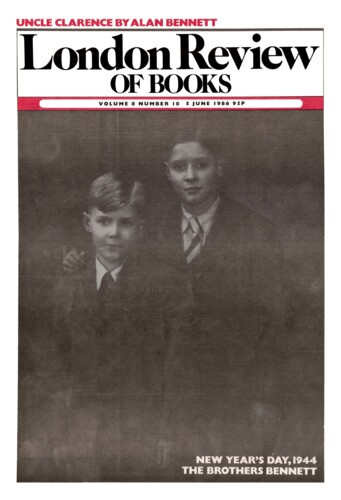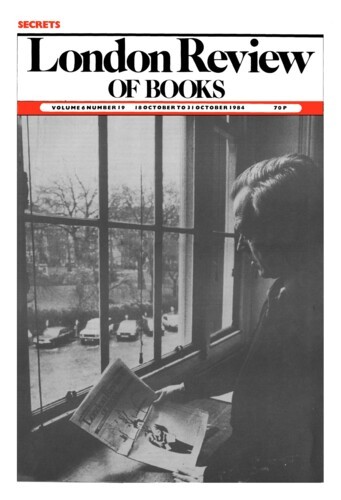An Identity of My Own
David Pears, 19 January 1989
The unity of my mind is something that I can appreciate when I use it, but it is hard to isolate and analyse. Without it, I could not have checked that sentence or added this one to it, and yet, when I turn my mind inwards onto itself, the source of its unity remains elusive. Is it something additional to all my thoughts and feelings, wholly au-dessus de la mêlée? What are the vicissitudes through which this anima vagula is capable of maintaining its own identity? How separate is it from the rest of the natural world? That last question forces itself on us not only when we think about the possibility of surviving death but also when we make any ordinary choice in daily life. For whatever people end by thinking after they have studied philosophy and considered the arguments for determinism, there is no doubt that they begin with the conviction that they are genuine orginators of their own actions, that when they choose to do them and do them, they could have chosen to refrain and refrained.





